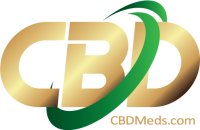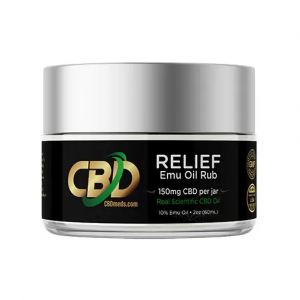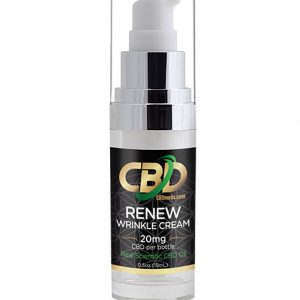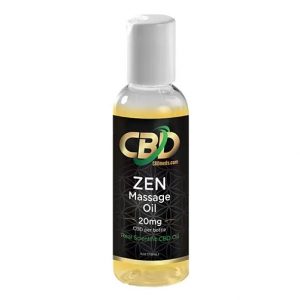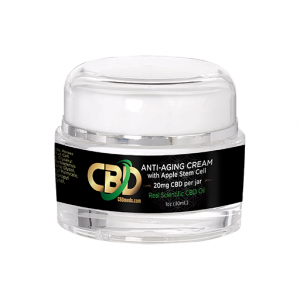There is no question that CBD is beneficial to our health. People have been using medical marijuana in one form or another for thousands of years for an array of health-related purposes. Despite humanity’s long use of the cannabis plant, however, Western medicine is still on the learning curve when it comes to how exactly we should be taking CBD and other cannabinoids.
Until recently, opinions about how to dose CBD have varied wildly from one medical practitioner to another. And, in fact, we can still see many different opinions within the industry. That said, there is plenty of agreement these days among top researchers concerning how to dose for certain conditions. As testing continues, the ‘common opinion’ may change a bit, but there is more than enough evidence to validate the current ‘best use’ philosophy.
While it is true that the jury is still out on a precise and well-documented dosage schedule for CBD products, the following suggestions can serve as a guideline to get you started.
Doctors Slow to Prescribe CBD
While things are looking up for the CBD industry and for patients approaching the cannabis plant for its health benefits, doctors are slow to prescribe CBDs over other more traditional medications. The reason? In short, it is because doctors do not have clear enough information yet regarding potency and frequency requirements. Approved medications have a recommended daily allowance, known as an RDA. The RDA comes as a result of thousands of studies and is accepted across the medical community.
CBD use in Western medicine is still very young and, as a result, doctors stick to giving recommendations rather than prescriptions. There is another factor limiting the widespread acceptance of CBD by medical doctors, and that is a general lack of knowledge.
Most doctors underwent their pharmacology training before their state legalized the use of medical marijuana which means many medical professionals simply aren’t familiar enough with the various applications of cannabinoid treatments available today.
Develop Your Own Dosage Schedule
Deciding how much to dose depends on several factors.
Firstly, you should look at the consensus to see what the vast majority of other users are taking. Currently, the common schedule for CBD dosage is around 25mg, twice a day. Though, that number varies quite a lot from condition to condition and from person to person.
Once you have established what others like you are taking, you’ll need to consider how CBD affects you personally. Everyone responds differently to CBD treatments, so starting with the recommended daily dosage and then adjusting accordingly is usually the best way to find a good dosage schedule.
The key, of course, is to find a perfect balance between cost-effectiveness and symptom relief. CBDs cause almost no negative side effects (more on that later) so it can be very easy to get excessive with your dosage schedule. While taking too little will result in not getting the relief you are looking for, amounts in excess of the relief you are after will go unnoticed.
Example dosages commonly accepted
Experts agree that there are some common dosages for CBD that work well for various conditions. As previously mentioned, there are numerous variables involved in determining an ideal dose. Consider the following as examples to give you a better idea about how much CBD you should be taking.
As we have discussed (internal link), there are receptors for CBD in every major system within the human body. That is why there is such a vast range of benefits from cannabinoid use. Reasons for taking CBD therapy include everything from cancer-related tumor reduction (internal link) to pain relief to sleep disorder relief and much more. An important thing to keep in mind is that finding an appropriate dosage depends largely on what exactly you are treating.
Cancer
Cancer patients often take 2-3mg of THC, along with up to 1mg of CBD per day to help with appetite loss and pain. It is also common to combine similar dosages of THC and CBD when used in concert with radiation therapy.
Glaucoma
For glaucoma, a single large dose often brings relief. Patients often take anywhere from 20-40mg, depending on individual need and severity of the condition. Dosing for glaucoma is generally taken sublingually.
Pain management
Pain management is one of the most common reasons people have for taking CBD products. Depending on the severity and source of the pain, doses can range from 2mg to 20mg daily. It is recommended to begin with smaller doses and move up slowly, at a rate of 25mg per day/ per week, until finding relief from pain.
Multiple sclerosis
For multiple sclerosis, patients use anywhere from 2mg to 120mg daily to find relief. Treatment for MS usually involves medication in spray form, and a combination of THC and CBD.
Epilepsy
Doses for epilepsy tend to be around 200-300mg daily. CBD for epilepsy is usually taken orally but can be taken in other forms as well.
Schizophrenia
For schizophrenia, doses ranging from around 40mg to 1,200mg are common. Again, the size of the dose is dependent on the severity of the condition and the effectiveness for particular patients.
Sleep disorders
Apart from pain management, one of the most common uses of CBD therapy is for sleep disorders. Those suffering from sleep-related problems commonly take from 30mg to 200mg.
Other Variables Affecting CBD Dosage
One reason that we suggest exploring your dosage CBD carefully is that choosing the ‘correct dose’ is never a black and white affair. Apart from metabolism, body weight, history of use, and the quality of the CBD product, there are cellular variables as well. In short, we have to look at the effectiveness of the endocannabinoid system to better understand how CBD dosage can change in different situations.
For the endocannabinoid system to function properly, the CB1 receptors that are responsible for processing CBDs have to work well. There are many chemicals which can affect CB1 receptors.
THC and alcohol to a limited extent have both been found to aid CBDs. Exercise also triggers a release of a chemical in our brains called anandamide which has a similar effect. CB1 receptors are also helped by an excess of Omega-3 so those who eat a fish-heavy diet would require lower doses of CBDs. On the other side of that coin, there are also things that reduce the effectiveness of CB1 receptors, such as morphine use and unchecked stress levels.
As you can see, the dosage that is right for you is dependent on much more than just how much you are taking.
CBD Products Available to You
If you are just coming into the world of CBD products, you might be surprised at how many different options there are. From creams, patches, and ointments to smokables to ingestible options you will certainly find a product that suits you.
The most common CBD products are ingestible. It is a simple process to combine CBD oil with food items, tinctures, gum, chewable tablets, candy, and much more.
When it comes to smokable options, CBD oil can be smoked in a vaporizer. There are also crystalline and wax-based smokables available.
For some, going with a lotion, patch, balm, or soap is the best option. Especially for anyone suffering from skin or hair conditions.
The list of product types is almost endless, with more showing up every day.
Which CBD Product Type is Right for You?
To understand which product CBD product type is right for you, it is important to consider your needs and preferences. Each product type represents a unique method of delivering CBDs into your system and comes with its own unique features.
Edibles
As previously mentioned, edibles are among the most common CBD product types. They are the easiest and most varied, as well. Apart from the sheer number of options available for edible CBD products and ease of use, ingesting CBDs gives you longer-lasting effects than any other method.
To put it to the numbers, you can expect effects from edibles within an hour of ingesting your CBD product and the effects will last up to four hours. This is also one of the easiest ways to control how much CBD you are using.
Smokables
There are also a lot of options related to smoking CBD products. Those interested in this method of delivery opt for smokables for their versatility as well as the fast-acting effects. Relief often comes almost immediately after smoking CBDs but doesn’t last as long as with ingestible options.
Effects of smoking CBD products are both instantaneous and short-lived. The convenience of this option help with their popularity, but continuous use is often necessary. Smokables also come with a sense of ritual and social interaction that other product types do not.
Topicals
Topicals are also popular options. Lotions, oils, soaps, and other CBD products are great for anyone looking for superficial relief and improvements in the chemistry of the hair and skin. Effects and relief from topicals take longer than with any other product type, but they are also some the longest lasting.
Products like transdermal patches can have effects lasting up to two days, which is more than any other option. While it can take several hours for the effects to kick in, patches are best for pain in the joins and deep muscle tissue. Other topicals are similarly slow to effect and long lasting but less so than patches. You can expect the effects of lotions, creams, balms, and soaps to last more than 4-5 hours.
Dosage Reminder
Whichever method of CBD treatment you deem best for your needs and lifestyle, remember that standard dosing is 25mg of CBDs, twice a day. Whether you choose edibles, smokables, or topicals, you should be aware of how much CBD is in each dose. After a few weeks at the commonly accepted effective dosage, you should either increase or decrease your intake based on how you feel.
Reasons to Consider CBD Treatment
Thanks to the endocannabinoid systems within the human body, CBDs assist with a vast range of conditions and symptoms. Ranging from physiological benefits to psychological, studies have shown that CBDs can greatly improve your life, no matter what you happen to be suffering from. Better still, is the fact that CBD treatment can also enrich your life when taken as a supplement as it helps balance brain chemistry, metabolism, and immune function.
The list of conditions that CBDs can help with is longer than most people think. In fact, it impressive to say the least. CBD offers relief for pain, inflammation, acne, depression and anxiety, irritable bowel syndrome, and much more. Patients also use CBD products to help with symptoms coming from a range of conditions including multiple sclerosis, rheumatoid arthritis, schizophrenia, and heart disease, to name but a few.
If you are suffering from any condition that CBD is known to help with, it is certainly worth considering how CBD can help you.
Worry-Free Treatment?
Many see CBD as a worry-free treatment, and in many ways, it is. There have been numerous reports suggesting humans have very high tolerances to CBDs. Patients often take upwards of 1400mgs daily for extended periods and show very few undesirable side effects and no reported deaths from overdose. Medical practitioners and research specialists often attribute CBD’s compatibility with the human body to the existence and effectiveness of so many CBD receptors within our own systems.
Even with a product that has so few natural side effects, it is worth mentioning that some negative experiences occasionally surface. Taking CBDs at high levels for extended periods of time can lead to lowered blood pressure, dizziness, drowsiness, and dry mouth. Should any of these side effects come up during your CBD treatment, it would be a good idea to review your dosage and to speak with a medical professional.
Another reason to rest easy when it comes to CBD use is that it is non-addictive. There is no evidence of a chemical dependency forming from CBD use, and there are no withdrawals when people stop taking CBD treatments, no matter how long they have used them and how much they have taken. In fact, CBDs are being studied for their potential role in reducing the effects and withdrawals from other types of addiction.
One thing to keep in mind, however, is that people get a lot of comfort from CBD use, and that comfort can be a bit addictive on an emotional level.
Final Thoughts
If you are considering CBD use for your treatment path, there are a lot of reasons to be happy. The low levels of risk and breadth of choices available make for a bit of a field day when it comes to selecting the right CBD product. The sheer number of conditions and ailments that can be relieved by CBD use is also impressive, to say the least. With product choices ranging from tinctures, oils, and creams, to pre-prepared shots and food items, there is truly something for everyone. While finding the perfect dosing schedule may seem a little tricky at first, a few weeks of observant use is generally all that is required to find the sweet spot between cost-effectiveness and symptom relief.
